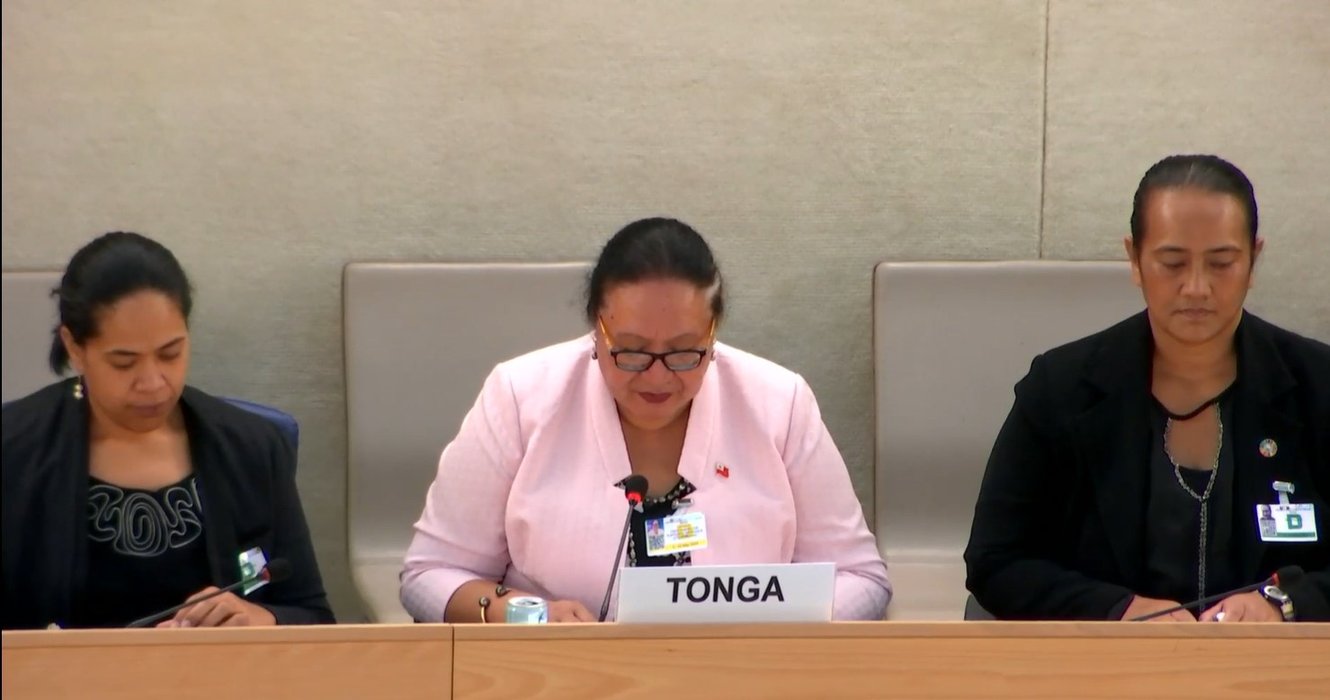
Tonga’s civic space is rated as ‘narrowed’ by the CIVICUS Monitor. Ongoing concerns documented include the existence of criminal defamation laws, restrictions on the media and risks faced by the LGBTQI+ community.
In May 2023, Tonga’s human rights record was reviewed by the UN Human Rights Council in Geneva. Among the issues raised were the lack of an independent national human rights institution, challenges to press freedom and the failure to review laws that could be used to silence freedom of expression.
The recommendations made by states include establishing a national human rights institution in line with the Paris Principles (Malaysia, New Zealand, Timor-Leste, Netherlands, Latvia, Dominican Republic and Lithuania).
Expression
Concerns about lack of press freedom
Ahead of the Universal Periodic Review, civil society groups submitted a report to the Council. According to the groups, the media in Tonga is not fully free and independent. While the Constitution protects freedom of the press, they stated that, in practice, the press is influenced by politicians and the Ministry of Communications.
Civil society also noted that journalists and media watchdogs criticised the government’s May 2022 regulations on unlawful publication of sensitive information, provision of false and misleading information, and noncompliance with licence conditions, warning that the new regulations had threatened independent reporting, internet radio broadcasts and social media websites.
The groups also emphasised that the Tonga Broadcasting Commission as a media institution, should be independent from the government regardless of its ownership.
In May 2023, Reporters Without Borders (RSF) ranked Tonga in 44th place out of a 180 countries in their latest global press freedom index.
Calls for revision of restrictive laws
The UN country team also raised concerns that Tonga had considered laying treason charges against people insulting the royal family on Facebook. In Tonga, the death penalty is a discretionary punishment available upon a conviction for treason and is carried out by hanging. The team also noted that the government had discussed blocking the social media platform because of escalating tensions between pro-democracy groups and supporters of the monarchy.
UNESCO recommended that Tonga decriminalise defamation and place it within a civil code that was in accordance with international standards and revise the Electronic Communication Abuse Offences Act of 2020 and the Communications Act of 2015, aligning them with international human rights standards, and clarify the ambiguities mentioned in the laws. The body also urged for the introduction of an access to information law.
Association
Discrimination against LGBTQI+ persons
Civil society groups also stated that homosexual, bisexual and transgender people were not afforded equal rights, sodomy was criminalised in Tonga, and cross-dressing was illegal. Under the Criminal Offences Act punishment for the crime of “sodomy” might include corporal punishment, in addition to up to 10 years’ imprisonment. In practice, the law has not been used to prosecute same-sex sexual conduct between consenting adults in recent years.
As previously documented, human rights defender Polikalepo Kefu was killed on a beach near his home town in Tongatapu, Tonga’s main island, on 1st May 2021. Kefu was a long-standing LGBTQI+ rights activist and the president of the Tonga Leiti's Association, an organisation dedicated to the country’s LGBTQI+ communities, providing support services, advocacy and education on HIV/AIDS.
A number of countries made recommendations calling for amendments to existing legislation that discriminates against LGBTQI+ persons and to decriminalise consensual same-sex relations (Mexico, Netherlands, Spain, US, Argentina, Brazil, Canada, Chile, Costa Rica, Germany and Iceland).